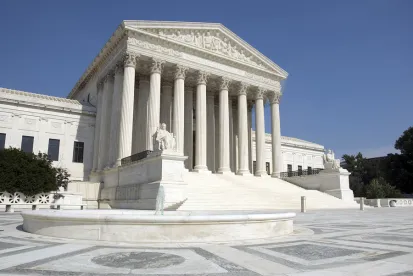Federal regulatory agencies, such as the Securities and Exchange Commission (“SEC”), the Commodity Futures Trading Commission (“CFTC”), and the Federal Energy Regulatory Commission (“FERC”), have the authority to impose sanctions and other equitable remedies for violations of the statutes and regulations that they administer. It is common for enforcement actions to end with a combination of civil monetary penalties, disgorgement of unjust profits associated with unlawful activity, injunctive relief, and in the case of the CFTC and the SEC, trading and registration prohibitions.
Historically, the ability of federal regulators to pursue various sanctions and equitable remedies has been limited by the federal catch-all five-year statute of limitations in 28 U.S.C. § 2462. Section 2462 has been applied to SEC, CFTC and FERC enforcement actions, among others. However, the application of this provision to certain types of sanctions is again the subject of disagreement in an enforcement action brought by the SEC. The Supreme Court is now being asked to weigh in on whether “disgorgement” is subject to the five-year limit; the SEC argues that disgorgement falls outside Section 2462. Although the case in question involves an SEC enforcement action, any decision will likely have an impact on enforcement cases brought by the CFTC, the FERC and other federal regulators.
The Federal “Catch-All” Statute of Limitations – 28 U.S.C. § 2462
The Securities Exchange Act, Commodity Exchange Act, Federal Power Act and Natural Gas Act do not specify a statute of limitations for regulatory enforcement actions. As a result, SEC, CFTC and FERC enforcement actions, among others, typically are subject to the federal “catch-all” statute of limitations in 28 U.S.C. § 2462, which provides:
Except as otherwise provided by Act of Congress, an action, suit or proceeding for the enforcement of any civil fine, penalty, or forfeiture, pecuniary or otherwise, shall not be entertained unless commenced within five years from the date when the claim first accrued if, within the same period, the offender or the property is found within the United States in order that proper service may be made thereon.1
Civil monetary penalties and fines fall within the express language of the statute and are therefore subject to the five-year limitation. In contrast, some Circuit Courts and regulatory agencies have asserted that disgorgement of ill-gotten gains is not subject to the five-year limitation because it is neither a “penalty” nor a “forfeiture.” Some of the court decisions have noted that disgorgement is fundamentally different from other sanctions because it prevents unjust enrichment and, therefore, serves a different purpose than a monetary penalty. Most recently, in SEC v. Kokesh, the Tenth Circuit held that “disgorgement is not a penalty under § 2462 because it is remedial,” and thus not subject to the five year limitations period under § 2462. The SEC has asked the Supreme Court to affirm the Tenth Circuit’s decision in Kokesh.
What is the Potential Impact of Kokesh on Future Enforcement Cases?
Disgorgement is a significant component of many major regulatory enforcement cases. For example, during the 2016 fiscal year, the CFTC’s enforcement actions resulted in monetary sanctions of over $1.29 billion, of which $543 million (42 percent) represented disgorgement or other forms of restitution. If the courts hold that disgorgement is not subject to the five-year limitation in § 2462, federal regulators may be able to pursue enforcement actions and collect sizeable monetary payments without any fixed time limitation. This development could have a potentially significant impact on market participants and regulators in the context of enforcement actions.
1 28 U.S.C. § 2462 (2016).




 />i
/>i

